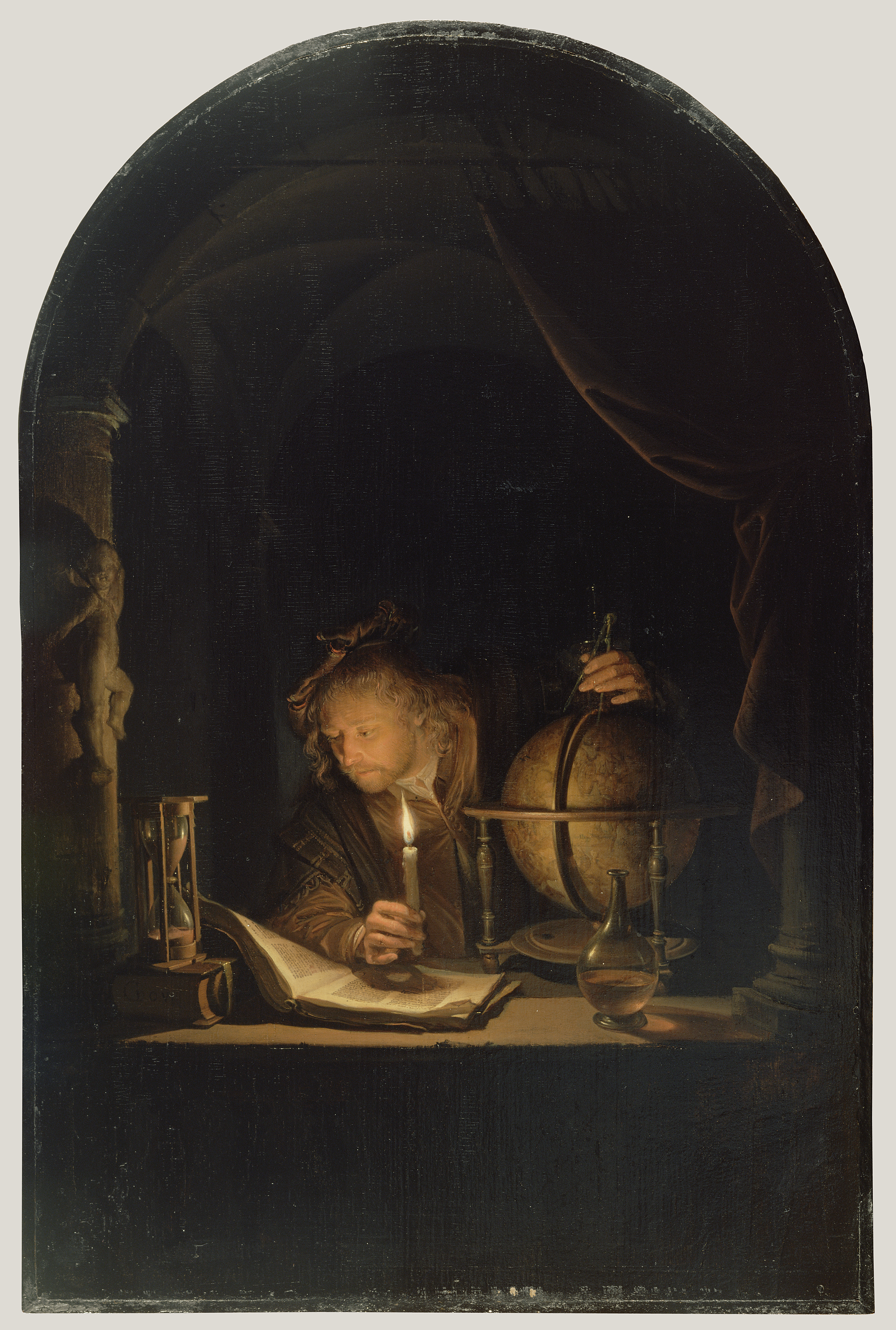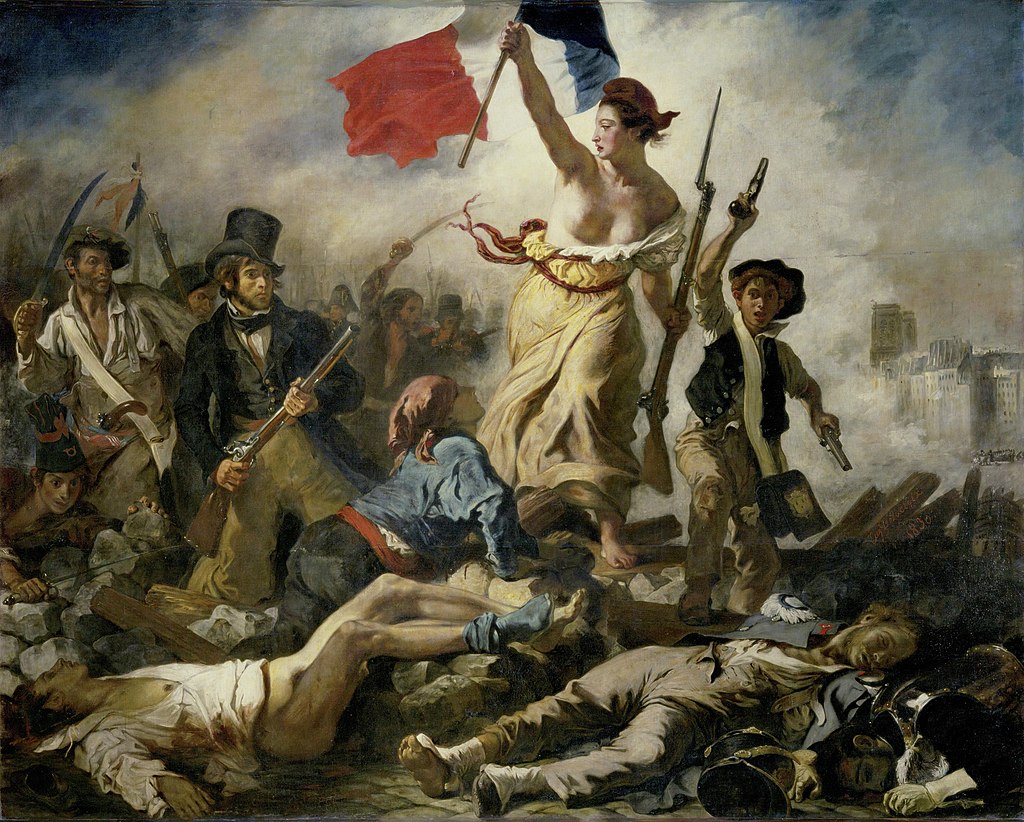
Jean-Francois de Troy. A Reading from Moliere. c. 1728. Oil on canvas, 72.4 x 90.8 cm. Private Collection.
The Enlightenment represents the movement of progressive ideas that radically changed the foundations of Western civilization. By advocating ideas based on rational inquiry and empiricism, Enlightenment thinkers developed modern notions of capitalism, science, technology, education, culture, democracy, and liberalism. Related to the concept of the equality of human beings was the novel idea of a social contract between a people and its rulers. Such concepts were expressed in the Declaration of the Rights of Man and of the Citizen during the French Revolution.

Gerrit Dou, Astronomer by Candlelight, oil on canvas, 32 x 21.2 cm, J. Paul Getty Museum, Los Angeles.
The Scientific Revolution was a time of change in beliefs and thoughts during the sixteenth and seventeenth centuries. Throughout the Middle Ages, scholars were taught what was accepted as truth—information that dated to Ancient Greece and Rome—without question. Theories were not tested. With the dawning of the Italian Renaissance, humanists studied the classics but also began to draw their own conclusions. They found that what they had been taught was not supported by their research. They questioned ancient ideas that were perpetuated by the Roman Catholic Church. These Renaissance developments opened the doors that allowed the Scientific Revolution to begin and grow. Some of the great scientific and mathematical minds in history came to fruition during this time: Nicolaus Copernicus, Rene Descartes, Galileo Galilei, Johannes Kepler, and Sir Isaac Newton were chief among them. Algebra, calculus, and trigonometry were developed. Physics and geometry advanced. The centuries-old central ideas of astronomy were challenged. The events of this period changed the course of the world.

Eugene Delacroix, Liberty Leading the People, October 1830 - December 1830, oil on canvas, 260 x 325 cm, Musee du Louvre, Paris.
The French Revolution, also called the Revolution of 1789, was a transformative event in European history, one of the first in a series of events that brought about the end of absolute monarchy and religious hegemony in Europe and paved the way for constitutional monarchies and representative government. Historians have identified numerous contributing factors behind the revolution, including deepening socioeconomic disparities and growing public resentment of the privileges enjoyed by the elite social and religious classes. In addition, the new wave of political and social thought known as the Enlightenment was spreading throughout the continent, fueling interest in revolutionary opposition to the inequities of the feudal system.

Jacques-Louis David, Napoleon Crossing the Alps, 1802, oil on canvas, 273 x 234 cm, Palace of Versailles, Versailles.
Napoleon Bonaparte, later known by his regnal name Napoleon I, was a Corsican-born French military commander and political leader who rose to prominence during the French Revolution and led successful campaigns during the Revolutionary Wars. He was the de facto leader of the French Republic as First Consul from 1799 to 1804, then Emperor of the French from 1804 until 1814 and again in 1815. Napoleon's political and cultural legacy endures to this day, as a highly celebrated and controversial leader.

